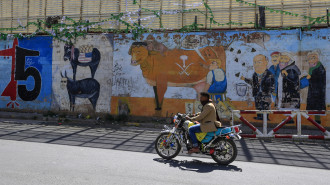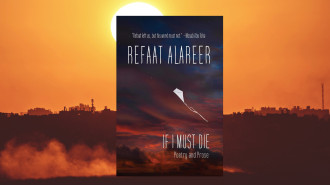The Middle East: Where press freedom goes to die
The world has entered a new age of "post-truth, propaganda, and suppression of freedoms," a new report on international press freedom has claimed.
The 2017 World Press Freedom Index, published on Wednesday by Reporters Without Borders (RSF), showed that press freedom across the world, particularly in the Middle East, has deteriorated over the past 12 months.
"Media freedom has retreated wherever the authoritarian strongman model has triumphed," the RSF said in a statement.
The Middle East as a collective region beat Central Asia and Eastern Europe to become the world's worst region for press freedoms, with a median position of 145 out of 180. This position also included Israel.
The best country in the region was Mauritania, at position 45, down seven positions on 2016.
Syria performed the worst in the Middle East for press freedoms and the fourth worst country in the world overall, beaten only by Turkmenistan, Eritrea and North Korea.
Syria was named as the most deadly country in the world for journalists in 2016 by the RSF, after 19 reporters were killed out of a global total of 57.
 |
Since April 2016, Turkish authorities have jailed around 100 journalists without trial, closed 149 media outlets, rescinded 775 press cards, withdrawn journalists' passports, and seized their assets without justification |  |
Turkey – "the world's biggest jailer of journalists" – also did particularly badly in a year that saw hundreds of journalists imprisoned and held with trial on terrorism charges.
Turkey's position dropped four places to 155 – considered worse than other repressive regimes including Russia, Belarus, Pakistan and Burma.
"Since July 2016, Turkish authorities have jailed around 100 journalists without trial, closed 149 media outlets, rescinded 775 press cards, withdrawn journalists' passports, and seized their assets without justification," the RSF wrote in an open letter to the British Prime Minister Theresa May.
In November 2016, the RSF published a report on the world's 'press freedom predators', which prominently featured many Arab leaders.
Egypt's President Abdel Fattah al-Sisi, Sudan's Omar al-Bashir, King Salman of Saudi Arabia, Bahrain's King Hamed bin Isa al-Khalifa and Syria's Bashar al-Assad were especially accused of spreading disinformation in order to facilitate their continuing dictatorships.
The report's summary makes particularly strong reference to the new President of the United States' recent references to journalism as a whole, calling it a "witch hunt against journalists".
"Donald Trump's repeated diatribes against the Fourth Estate and its representatives – accusing them of being among the most dishonest human beings on earth and of deliberately spreading 'fake news' – compromise a long US tradition of defending freedom of expression," it said.
What are your thoughts on the deterioration of press freedom across the world? Join the conversation by tweeting us @The_NewArab







 Follow the Middle East's top stories in English at The New Arab on Google News
Follow the Middle East's top stories in English at The New Arab on Google News


